The Secret to Cutting Through French Bureaucracy!
The weird French obsession with the handwritten letter.
First of all, thank you to Michael Ian Black who mentioned us in his terrific Substack last week and finally pushed us over 1000 followers! We appreciate all our readers and love that you are sharing this insane journey with us.
Last night Roberto and I watched Late Night with Stephen Colbert and he did a bit in which he answered letters from his viewers. He’d asked people to hand write a letter, take a picture of it, and then email it to the show. The effect was that when Stephen (we’re on a first name basis) pulled a letter from his big bag, the personal handwriting made each letter look unique and different (and not say, written by his comedy staff).
I couldn’t help but think of the French and their obsession with handwriting and the handwritten letter. This cartoon is based on my real experience. Names have been changed to protect the innocent.
Since this experience with opening a back account, Roberto and I have sent handwritten letters to complete the purchase or our apartment, to obtain paper checks, and to get a French cell number.
I endeavored to get to the bottom of it.
There is no legal difference (that I can find) between a handwritten letter and a typed one. The handwritten letter allows the receiver to have your signature on file, which could be used in the future, but I could not find anything to support this theory. Traditionally in the USA, one was required to print our forms, sign them in ink, and then upload them (isn’t that why we all bought scanners?) However, more and more companies now accept digital signatures.
So what’s up, France?
France is famously a country of letters, in the sense that “a man of letters” is an intellectual occupied with the use of language. Even in the computer age, the French put a high premium on the art of handwriting.
This is a post from an English woman married to a Frenchman.
While incredibly beautiful, French handwriting style is uniform, the same for everyone . . . This is because kids in France are taught from infant age how to do joined-up writing. . . The school environment remains very traditional in its approach, including l'écriture cursive. This is precise work. So precise that it requires special paper with grids to ensure students keep their writing straight and at the right height and size. School notebooks in France all contain this grid paper with the red line margin to the side - so teacher can scold you if your writing goes awry.
I don’t know about you, but I always wondered about the famous French cahiers, which have grids instead of lines. I always found them charming but had no idea the grid was supposed to lead to flawless writing.
I no longer write in cursive. Blame computers. I used it throughout elementary school and high school, but once I got to college the word processor took over. Somehow over the years, the cursive left me. Now I am left with penmanship that looks like the writing of a 10 year old boy.
Now that I understand the importance of French handwriting, I am a little embarrassed by my childish scratch. I tell myself that the French think, “She is American. Her handwriting, c’est nul (it sucks), but she will probably pay her bills.” (side note: the French are pretty notorious for procrastinating bill payment, and people seemed amazed and overjoyed that we pay so quickly).
I also found this piece— A graphological love affair: Why France still picks job applicants based on their handwriting. Wait. What?
‘Our writing comes from the heart, from our cardiac movement, through the nervous system and to the end of our fingers and through the pen,’ [says Caroline de la Tournelle, a French graphologist* (someone who studies handwriting)]. ‘We are full of nuance, but three things never change’ – how emotional and energetic we are, and how much we rely on outside stimuli to act.
Important issues while choosing a candidate. And many companies stress that it's not the one deciding factor in choosing an applicant: experience, interviews, all of the regular markers play a far more important role. Their handwriting simply gives a little bit more information.
‘Pressure is always the first thing I look at,’ says de la Tournelle. ‘How hard they pressed, how the writing moves, how it is organized... it all has meaning.’
So have my handwritten letters been a secret personality test? If I crossed my t’s too aggressively, would they have said, “No bank for you!”
I can’t say I got the bottom of the mystery of these letters, but I’m sure we will need to write one again soon. We’ve experienced some snags in getting our driver’s licenses, and I’m sure the letter will end up being part of the remedy. But now I will be nervous and self-conscious about my lettering.
Can you imagine the humiliation? I was deported for having dicey w’s and y’s. The French said I was a security threat.
May my embarrassment be your gain: if a French person is telling you, “Non, non, non,” offer to write them a letter and watch the gates magically open.
Jusqu’à la prochaine fois,
Carolyn & Roberto
*Roberto has requested that I say that “graphology” is pseudoscience bullshit.
You might also considering subscribing to my other Substack!






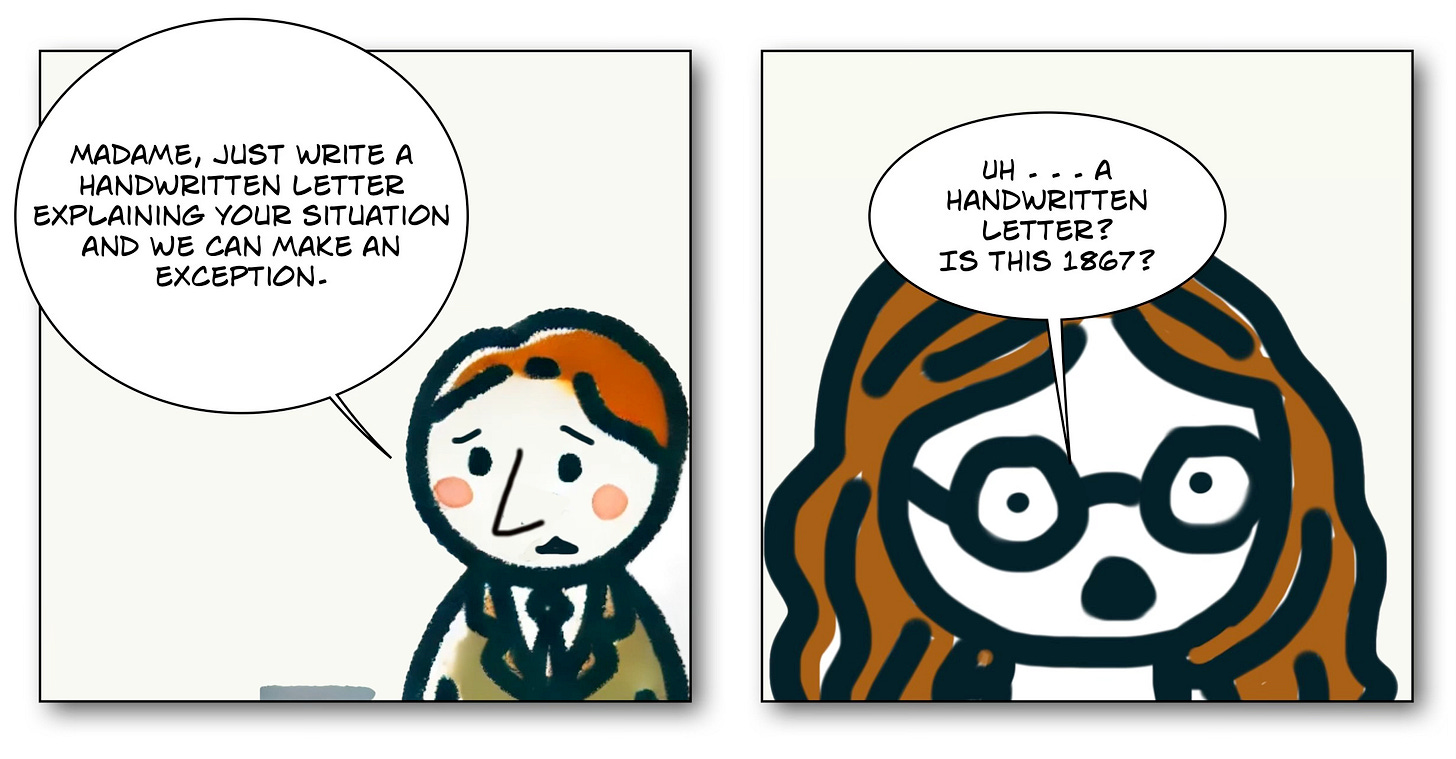
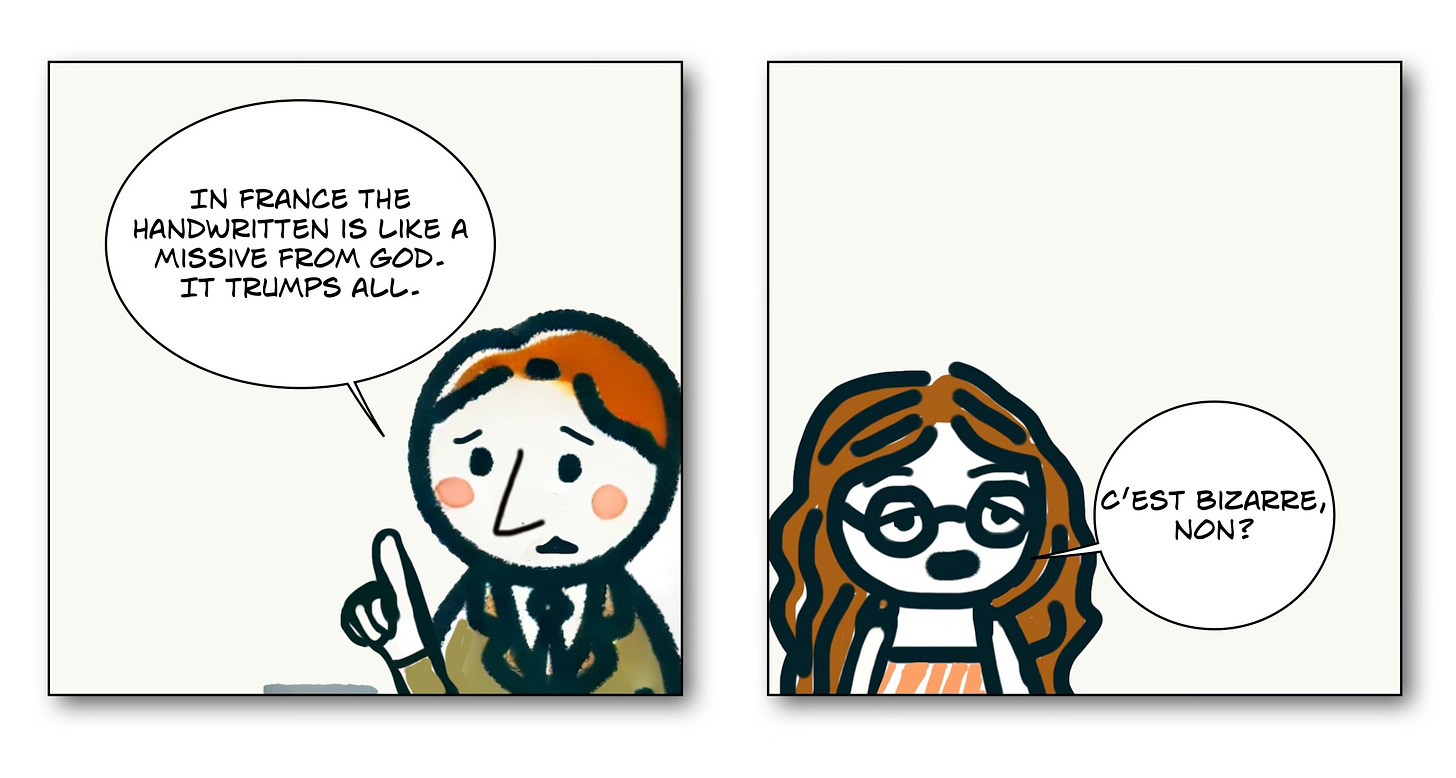
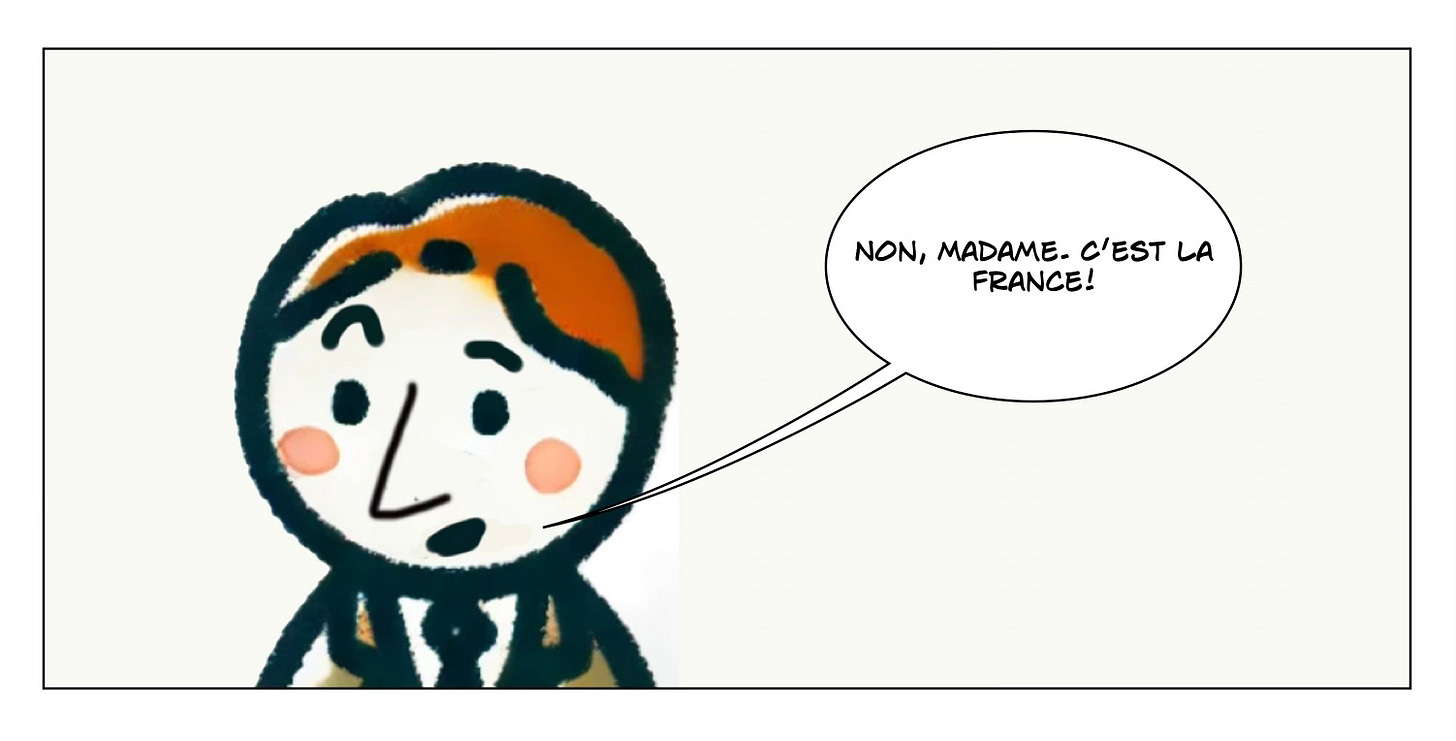
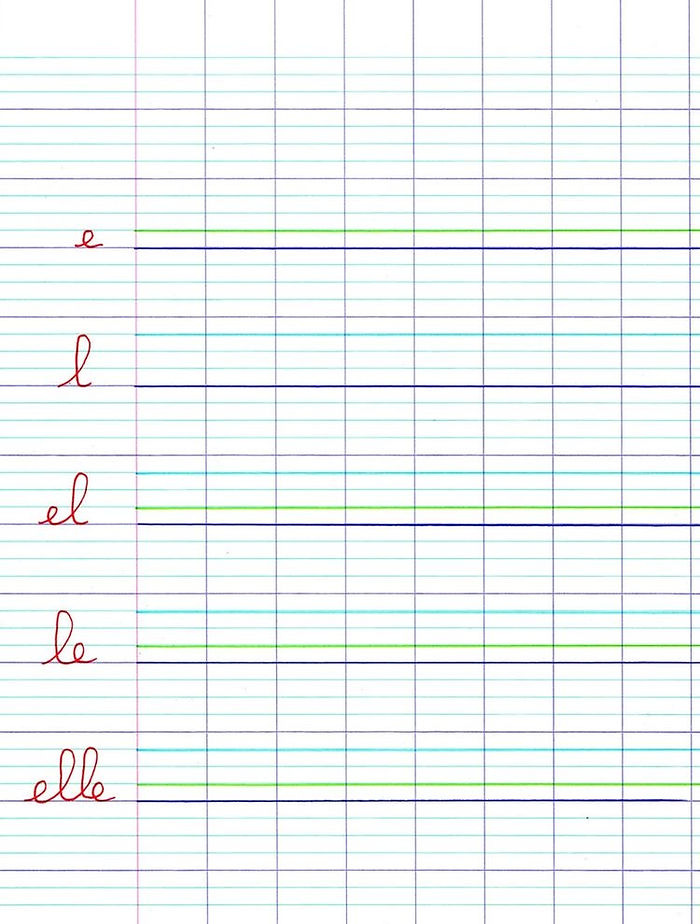
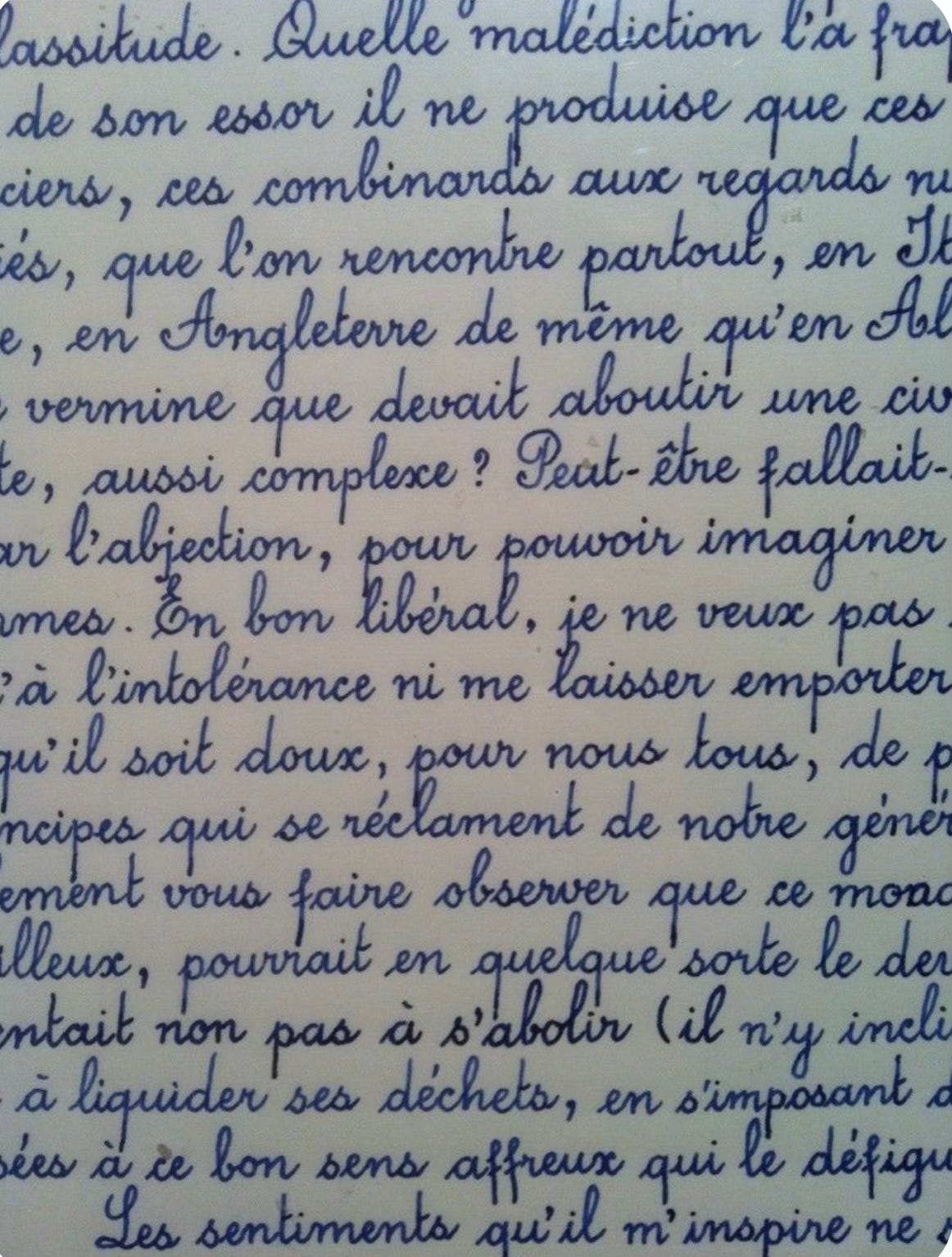


Incroyable! And yet - we faced a similar Kafkaesque situation in Slovenia. My husband had trouble getting his residence through press accreditation.
In the end the lady said, why don't you just write a letter saying that you love Slovenia and want to stay here? It worked! And it was true! 🤣
Oh dear, I’m in trouble—my handwriting is terrible! Thanks for this clever hack 😊